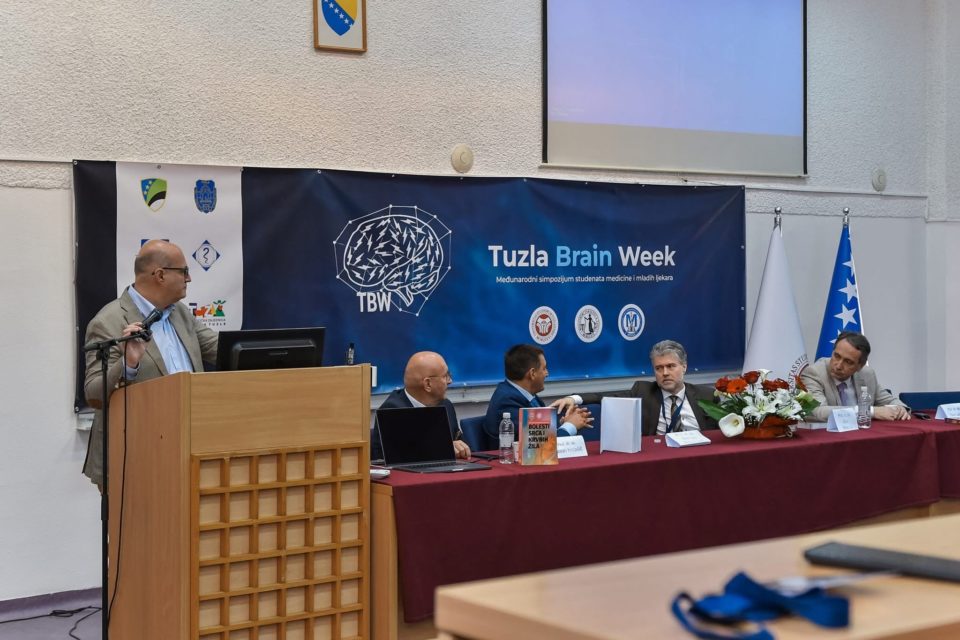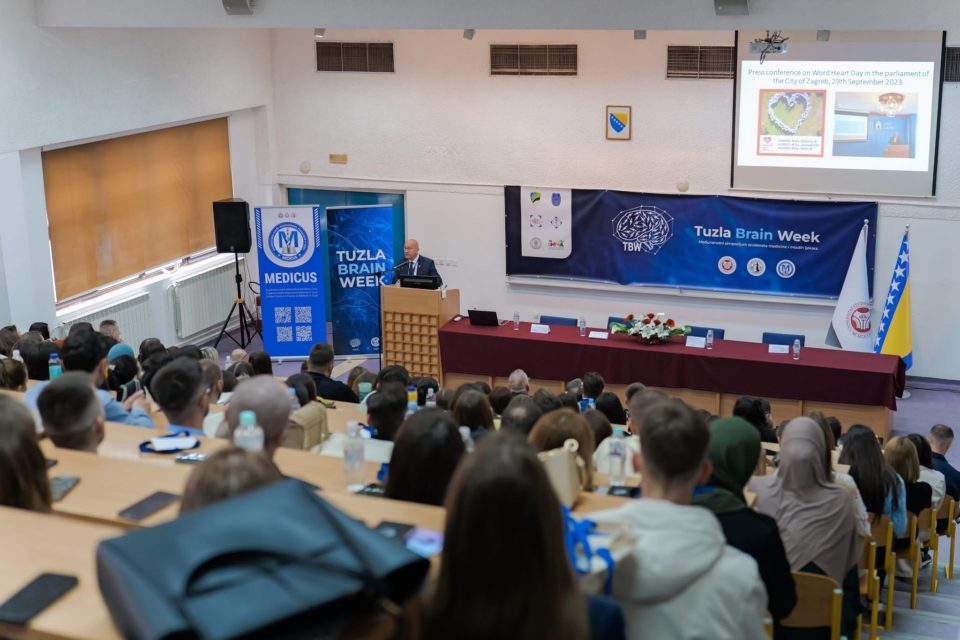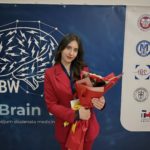
More than 250 students and young doctors from across the region gathered at this year’s Tuzla Brain Week, held from April 25 to 27, to explore one of the most advanced areas of modern medicine – neurocardiology.
This emerging field examines how the brain and heart communicate, how stress impacts heart rhythm, and why emotional states can trigger serious health disorders.
With the help of experts from Sweden, Switzerland, Croatia, Serbia, and Bosnia and Herzegovina, students and young doctors made Tuzla the regional epicenter of neurocardiology – the science which is a bridge between feelings and physiology – where thoughts become impulses and emotions leave their mark on the heart.
Dr. Branislav Milanović is the head of the neurocardiology laboratory at the Dedinje Institute for Cardiovascular Diseases in Belgrade and the president of the Serbian Neurocardiology Society. He was a guest at Tuzla Brain Week, where he spoke about the importance of neurocardiology.
“Our goal is to present neurocardiology as an integrative science, which combines several sciences and answers questions that have not been solved in medicine. These are the so-called gray zones among some scientific disciplines, where answers to certain questions are lacking. Neurocardiology is multidisciplinary and connects the brain and the heart, so it’s a real branch of medical science that can give answers to all these questions,” said Milanović.
‘Broken Heart Syndrome’
The lecturers discussed various aspects of the relationship between the heart and the brain, with one part of the program devoted to a particularly interesting medical phenomenon: “broken heart syndrome,” also known as Takotsubo syndrome. This topic was discussed by Dr. Elmir Omerović, one of Sweden’s leading cardiologist, who is also a professor at the University of Gothenburg and head of the Heart Research Group at Wallenberg’s laboratory.
Omerović started the lecture with an anecdote that is familiar to most Bosnians – the story of Hasanaginica, about a person who “died of sadness.” “My scientific group deals with Takotsubo syndrome and it is a great honor, but also an obligation, to share this knowledge here, especially when I see all these young people, students eager for knowledge,” said Omerović.

This year’s Tuzla Brain Week was distinguished by its multidisciplinary approach, connecting cardiology and neurology. Unlike previous years, when the international symposium focused exclusively on neurological topics, this year, a broader perspective on health and patient care was considered.
“The earlier approach was directed only towards certain categories, mostly individual neurological problems. Now the focus of Tuzla Brain Week is on a more comprehensive overview of the person at risk, that is, the patient,” explained the project mentor, Dr. Elnur Smajić, acting head of the Internal Clinic of the Tuzla University Clinical Center.
Uniting Current and Future Leaders in Medicine
The lecturers at this year’s Tuzla Brain Week included top experts from various medical fields like Dr. Goran Krstačić, director of Srčana Clinic in Zagreb and a regional expert in the prevention of cardiovascular diseases. Dr. Mario Ivanuš and Dr. Antonija Krstačić, also from Croatia, spoke about challenges and innovations in emergency medicine.
Dr. Emir Tupković, specialist in neuropsychiatry and head of Neurology at the Tuzla Health Center, spoke about the state and development of neuropsychiatry.
The scientific research segment of the program was led by Dr. Farid Ljuca, head of Physiology at the Faculty of Medicine in Tuzla. The technical dimension of modern healthcare was discussed by Dr. Nihad Mešanović, a biomedical engineering expert and head of the IT Department at the Tuzla University of Applied Sciences.
Their knowledge, passion, and dedication made a strong impression on participants – the next generation that will shape the future of healthcare in the region.

Amina Smajić, a medical student at the University of Tuzla and a coordinator of Tuzla Brain Week, explained the significance of this international scientific symposium, which is the student council’s largest project.
“Tuzla Brain Week has long been recognized as the leading student scientific event in Bosnia and Herzegovina. However, this April, we surpassed our own achievements – we gathered world-class experts and youth eager for knowledge together in one place. Tuzla has become a city where science is not only the subject of lectures but a joint project by current and future medical leaders,” said Smajić.
This year was the tenth consecutive Tuzla Brain Week, proving that students can do great things that endure. Smajić emphasizes that beyond its scientific significance, it shows that when given the opportunity, students can achieve amazing results and organize top projects that promote science, knowledge, and, in this case, neuroscience and medicine.
_______________






